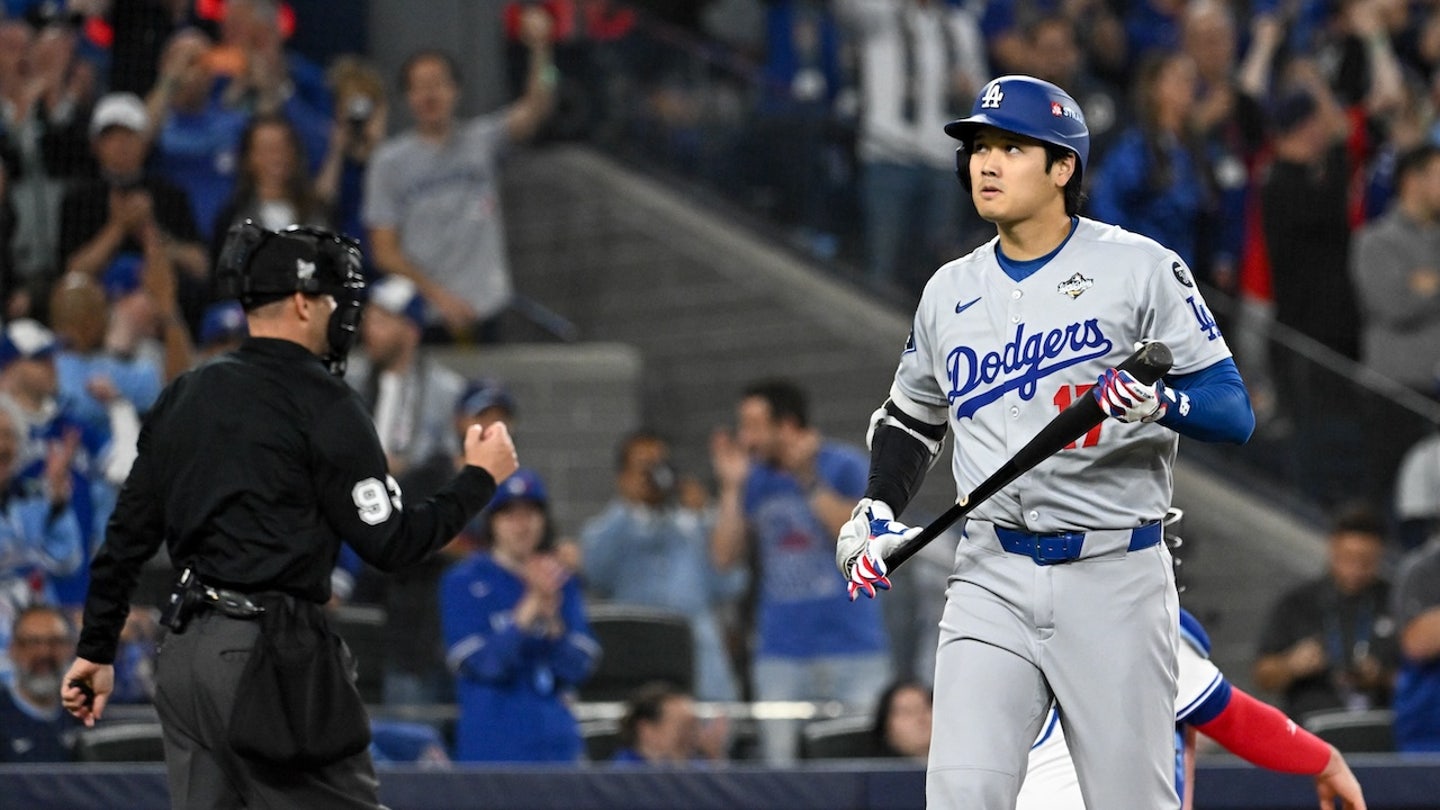
Blue Jays beat Dodgers in World Series Game 1, Shohei Ohtani hits first career Fall Classic homer
Entities mentioned:
- Toronto Blue Jays: Competitive spirit, Pride, Ambition
- Los Angeles Dodgers: Competitive spirit, Determination, Redemption
- Dalton Varsho: Competitive spirit, Recognition, Professional pride
- Addison Barger: Competitive spirit, Recognition, Legacy
- Shohei Ohtani: Competitive spirit, Legacy, Professional pride
- Yoshinobu Yamamoto: Competitive spirit, Professional pride, Duty
- Kevin Gausman: Competitive spirit, Professional pride, Duty
Article Assessment:
Credibility Score: 85/100
Bias Rating: 55/100 (Center)
Sentiment Score: 65/100
Authoritarianism Risk: 15/100 (Strongly Democratic)
Bias Analysis:
The article presents a balanced account of the game, giving credit to both teams' performances. While there's slightly more focus on the Blue Jays' success, it's justified by their win and doesn't significantly skew the overall narrative.
Key metric: World Series Performance
Let me tell you something - this World Series opener was an ABSOLUTE SLUGFEST! The Blue Jays came out swinging like heavyweight champs, delivering a knockout punch in the sixth inning that left the Dodgers reeling! Varsho and Barger stepped up to the plate like true clutch performers, while Ohtani's late-game homer was like a Hail Mary pass that just couldn't turn the tide. The Jays' fans brought the heat, turning the Rogers Centre into a pressure cooker that clearly rattled the Dodgers. This is the kind of championship mentality that separates the contenders from the pretenders, folks! The Dodgers need to shake off this loss and come back with a vengeance, or they'll find themselves in a deep hole faster than a sprinter out of the starting blocks!

U.S. Defender In Danger of Missing 2026 World Cup With Achilles Injury
Entities mentioned:
- Cameron Carter-Vickers: Determination, Professional pride, Ambition
- Brendan Rodgers: Duty, Professional pride, Anxiety
- U.S. National Team: Competitive spirit, Pride, Ambition
- Celtic FC: Competitive spirit, Professional pride, Ambition
- Auston Trusty: Ambition, Professional pride, Enthusiasm
Article Assessment:
Credibility Score: 85/100
Bias Rating: 50/100 (Center)
Sentiment Score: 30/100
Authoritarianism Risk: 10/100 (Strongly Democratic)
Bias Analysis:
The article presents a factual account of the injury and its potential impact, quoting the team manager directly. It maintains a neutral tone without favoring any particular perspective.
Key metric: US Men's National Soccer Team World Cup Performance
Let me tell you something, folks - this is a MASSIVE BLOW to Team USA's defensive line! Cameron Carter-Vickers, a key player in our backfield, has just been sidelined with an Achilles injury that could bench him for up to FIVE MONTHS! This is the kind of setback that can derail a team's championship dreams, ladies and gentlemen. We're talking about a potential game-changer here, with the 2026 World Cup looming on the horizon. The U.S. squad is now in a fourth-quarter scramble, trying to figure out how to plug this gaping hole in their defense. Will Auston Trusty step up to the plate and become the clutch performer Team USA desperately needs? Or will this injury force coach Gregg Berhalter to completely redraw his defensive playbook? I'm telling you right now, this is the kind of adversity that separates the contenders from the pretenders. It's crunch time for the U.S. Men's National Team, and they need to show that championship mentality to overcome this major hurdle!